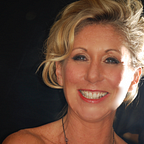No Idea
Once, there was a girl who had no idea. None whatsoever. Her life was a series of felicitous accidents, right from brith. Of course, not everything that happened to her was happy circumstance. Some things were downright awful, tragedies. Deaths, divorces, a short interlude with illness. Even these things she floated through with a kind of distance that implies downers or sheer disinterest. Not that she was drugged, or even disinterested. Instead, the girl held all of her feelings, all of her reactions, all of her sentiment, inside, as if to let go would mean certain death.
That this separated her from her peers was no surprise to anyone. Endless cajoling by parents and then teachers had not one iota of effect: she was a loner not by choice or by ostracisation, but because she could not help but remain under the spell of her many thoughts. It took time to organise a chaotic brain, especially since she knew that all information was worthy of being stored, catalogued carefully and filed for future reference. The bird song of the annual swallows and swifts as they performed, for one week only, no re-runs, over the concrete pool in the backyard. Their trills and shrieks and the tiny wash as they trailed their wings in the summer-tepid water, she filed under both First Week of Summer and also Happiness Sounds. The screech and grind of her brother’s skateboard, the acrylic protest of the board’s tail against the roughened concrete that had taken her dad three days and eight cartons of beer to finish. This too she arranged in multiple categories: False Calm, as was always the case when her dad was at home. Anger, for the same reason, and because the calm never stayed. And finally, Loneliness. Even though they were different, so very different as to cast doubt on their parental liens, she had always had the sense that he was an ally, her ally against the greater confusion of the adult world, with its sharp twists and violent turns. Lately though, puberty and a new, brightly, callously brutal cohort gathered from the tribes of the eighth grade, first year of high school, had rendered him unreachable, as if he were frozen for all time in perspex; she could see him but not touch.
That she was mocked for her attitude, her way of being, goes without saying.
Princess thinks she’s above us all, hey missy? Too good to talk to the likes of us?
Oh look, her comes the girl with no brain, can’t get a word out of her, snippy bitch.
Only ugly girls keep their heads in books.
Reading so much will make you squint.
Boys don’t like smart girls.
They reckon she’s not a spaz but just look at her, she’s not playing with a full pack.
Get your fucken head out of that shite and go help your mother clean up. And bring me a beer. (Courtesy of her dad; see False Calm and Anger)
There’s a real world out there my girl and you’d better get on with it.
Bloody head in the clouds, no good to anyone.
Nothing comes from dreaming.
Books are bullshit. Learn a trade. You’d probably make an ok hairdresser.
The insults and abuse rolled off her, like everything else except what was in her head and once she could read, what was in books. If she had ever been asked to articulate the moment her life changed for good, it was when she learned to read. There was nothing she couldn’t do, no place she couldn’t go once she discovered reading. The blurb on the conrnflakes packet (filed under Breakfast and also Yellow Things), the instructions in her mother’s sleeping pills (Necessities and Light Blue Things). Each and every Reader’s Digest tome that entered the household without fail once every three weeks; someone had foolishly subscribed and subsequently found it impossible to cancel and so the postman would lug one hard-bound, ruby red book with gold writing on the spine after another and she would read them. Devour them. She suffered the indignities of war and the trials of great and binding if slightly laconic love in A Town Like Alice and the gut-rotting fear of the end of times with On The Beach (see Apocalpyse, Love, Fifties Fashion). Occasionally her dad would bring home a Jackie Collins or Harold Robbins that someone had left on the bus; this is how she learned about sex and power (far more than she learned watching her ill-matched parents bicker and brawl as soon as they were in close proximity and even if they were not — her father had the capacity to infuriate her mother from a distance, it was a special gift). There were the women’s magazines that taught about cooking and how to resolve rifts in the family (the part she filed for future use, knowing full well there was no pointing her trying to fix her own). There were teen magazines that should have given her all of the tools required to become popular, if only that was something she had any interest in at all (still, she filed prolifically under Beauty, Personality Type, Pimple Remedies, and How to Flirt). There was always something to read, and that was just as well as even the girl knew that with out the weight of ideas, she might have just floated away, too insubstantial to hold.
